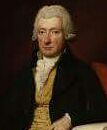THERE IS A FOUNTAIN FILLED WITH BLOOD – by William Cowper (pronounced Cooper)
LYRICS:
1.There is a fountain filled with blood
Drawn from Emmanuel’s veins
And sinners plunged beneath that flood
Lose all their guilty stains
Lose all their guilty stains
Lose all their guilty stains
And sinners plunged beneath that flood
Lose all their guilty stains
2. E’er since, by faith, I saw the stream
Thy flowing wounds supply,
Redeeming love has been my theme,
And shall be till I die.
And shall be till I die,
And shall be till I die;
Redeeming love has been my theme,
And shall be till I die.
Biography of Hymn Writer – William Cowper (pronounced Cooper)
He was one of the few hymn writers that was also a recognized secular poet. This much tormented literary figure was born in England, on Nov. 26, 1731. His father was a chaplain. His mother died when he was 6 years old.
There is a Fountain Filled with blood was written during one of his many depressions. Written around 1771, the song was based on Zechariah 31:1, “On that day a fountain shall be opened for the house of David and the inhabitants of Jerusalem, to cleanse them from sin and impurity,”
The hymn is a meditation on the saving power of the blood of Christ. Though couched in good poetic words, the song was not only poetry, but the poetry of intense and impassioned feeling, which naturally embodies itself in the boldest metaphors.
His emotional difficulties began as a young boy in a boarding school, largely for the loss of his mother. He went ahead to qualify as a lawyer though he did not practice. He became a recorder of proceedings in the House of Lords. Just as his career seemed assured, tragedy struck. When he was interviewed for the position, he suffered a panic attack. As a result, he was not awarded the position, a loss that led to a state of deep depression. He was treated in a Hospital and took up residence with a Rev.
This Rev died not too long after. He became a close friend of the Rev’s wife. He was soon persuaded by another close friend, John Newton, author of the famous hymn, “Amazing Grace,” to take a job as vicar of a small parish. Newton and Cowper developed a close friendship over the years, and began a joint publication that became very influential, The Olney Hymns.
In 1773, two years into the Olney Hymns project, Cowper’s brother died, and the poet relapsed into his deepest state of depression. He became convinced that God wanted him to commit suicide. He tried three times to kill himself, but each time something prevented him from carrying through. Cowper believed God had stopped him.
In 1796, the wife of the Rev died. He suffered her loss so deeply that he went into a permanent state of despair. This led to his eventual death on April 25, 1800.





